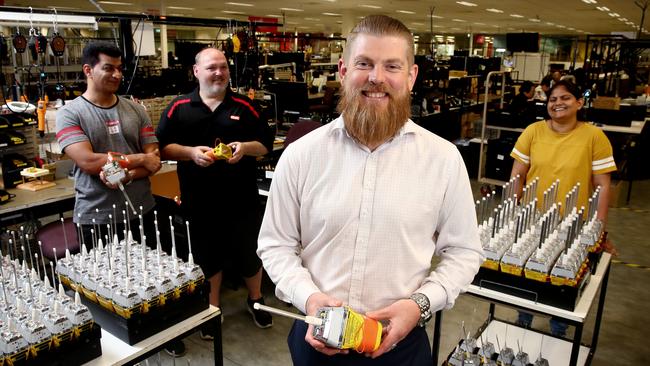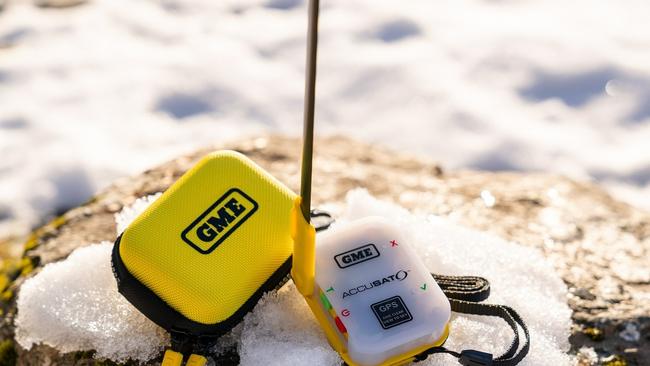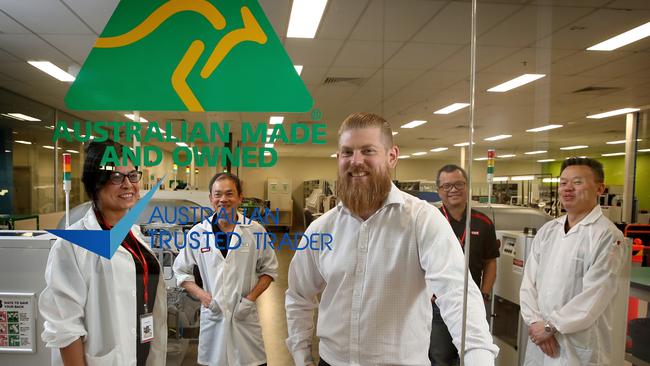Future Made in Australia and other government policy key to boosting manufacturing: GME
From its base in western Sydney, Australia’s largest manufacturer of handheld radios says the Future Made in Australia initiative is crucial for sovereign capability.

Australia’s largest manufacturer of handheld radios says the Albanese government’s flagship Future Made in Australia policy is an important first step in local manufacturing capability as it beefs up its workforce to meet rising demand for domestically made products.
GME, which employs more than 230 people at its western Sydney facility, has rapidly expanded its workforce to meet the shift in consumer and business preferences for locally made goods, and to position itself at the forefront of Australia’s sovereign manufacturing sector.
GME chief executive Stephen Millar said the company was behind any government initiative that supported local manufacturing and enhanced Australia’s sovereign capabilities, describing it as a good first step to growing the sector.
“Initiatives like Future Made in Australia are critical for strengthening sovereign capabilities, boosting local supply chains, and driving economic resilience,” he said.
“This will become increasingly important in areas such as defence, where sovereign capability can reduce risks to national security and supply chain resilience.
“By continuing to invest in local manufacturing, we not only achieve business growth but also help to strengthen Australia’s national security, ensuring we remain both competitive and self-reliant.”
The $22.7bn Future Made in Australia scheme will oversee how government partners with the private sector to deliver more renewable projects, increase manufacturing and shore up the country’s sovereign capabilities.

GME group marketing manager Tony Crooke said Future Made in Australia was only the first step and called for more government policy to bring more manufacturing home and make the country more competitive globally. “We try to source subassemblies and components from other Australian manufacturers when we can, but having more electronics made here would be a win for us and the country’s sovereignty,” he said.
Because of Covid-19 lockdowns in South Korea and Taiwan, there was a worldwide chip shortage as production facilities were shut down from restrictions and led to a depletion of inventories for suppliers such as GME.
Mr Crooke said while there had been an overall increase in capacity globally in terms of semiconductor manufacturing, there had also been a reduction in demand, which helped to reduce pressure on global chains, which he added were volatile at the best of times. “It’s all well and good to assemble a product in Australia, and if all of the components being used to assemble that product come from offshore, then it does put us at risk in terms of our security and resilience going forward,” he said.
“Having policies in place that mean we can rely less on external and overseas suppliers is good for GME and Australia with a strong domestic supply chain.
GME has made substantial investments in Australia’s national security through its just launched secure electronics manufacturing zone at its Winston Hills site in western Sydney. This facility is designed to produce high-assurance electronic equipment for Australian defence customers, a critical area for the nation’s sovereign capability.

It has also taken steps to reinforce its supply chain by keeping extra stock and locking in orders much further in advance to ensure manufacturing can continue without any gaps. And it has invested in advanced electronics manufacturing capabilities, as well as build to print services and the ability to make its own circuit boards.
A 30 per cent expansion in GME’s workforce over the past three years has mostly been in manufacturing and engineering divisions. While there has been an influx of immigrants into Australia, GME notes it was still a challenge to find workers, particularly in its skilled electronics and radio-frequency engineering discipline where there is a limited number of Australians who are trained.




To join the conversation, please log in. Don't have an account? Register
Join the conversation, you are commenting as Logout